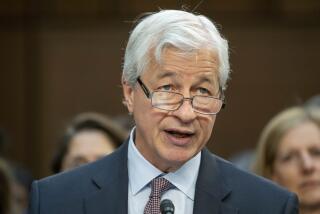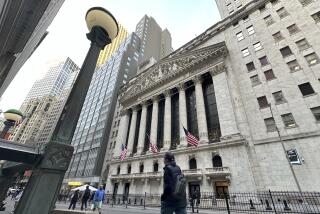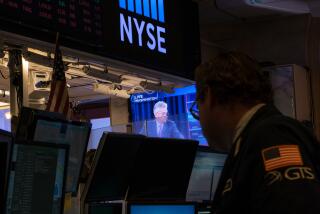With U.S. interest rates low, investors look to developing world
NEW YORK — Zambia may not seem like the hottest investment out there.
Disease, unemployment and poverty threaten its 14 million people in the small sub-Saharan nation. Zambia also faces an electricity shortage, while its roads and train system fall apart. And the country depends heavily on copper mining to fuel any economic growth.
Yet when Zambia debuted bonds on the market last month, it wound up selling $750 million worth of fixed-income securities to investors — 50% more than originally planned. Demand was so high that Zambia wound up paying only about 5.4% in interest on the debt — around the yield on Spain’s debt.
Welcome to a world in which U.S. interest rates are so low that investors look around the globe for higher payoff, even as far as Zambia
“A lot of investors are fighting for the most yielding bonds on the market at the moment,” said Stephane Fertat, a fixed-income portfolio specialist at T. Rowe Price in London.
Investors have been plowing cash into bonds issued by companies and countries outside the United States as the Federal Reserve keeps a lid on rates in hopes of spurring the economy back to life. Central banks elsewhere around the world have also been flooding the global economy with money.
The result: world and emerging-market bond funds pulled in handsome returns in the third quarter — 4.1% and 6%, respectively, according to Morningstar, a financial data and analysis firm.
Mutual funds focusing on bonds from developed countries outside the U.S. have returned 7% so far this year, according to Morningstar.
Investors in these mutual funds and similar exchange-traded funds are generally looking to protect their portfolios from declines in the U.S. dollar, compared with other major currencies.
“You’re betting against the dollar, with a little bit of yield,” said Tim Strauts, a fund analyst at Morningstar. When the dollar’s value falls “and you own something in a different currency, it rises,” he said.
Global bonds performed relatively well in the third quarter as investors grew more confident about the Eurozone’s sovereign debt crisis after the European Central Bank embarked on an open-ended bond-buying program aimed at easing troubled countries’ borrowing costs, he said.
“The prices have gone up,” Strauts said. “You’re willing to buy them today to sell them to the ECB tomorrow.”
Funds concentrated in bonds from emerging markets — that is, companies and countries of the developing world — have returned 13.5% so far in 2012, according to Morningstar.
In the last decade, investors have shoveled $55 billion into emerging-market bond funds, said Chris Philips, a senior analyst at Vanguard, the mutual fund giant.
Nearly all — $48 billion of that — has come in the last three years as savings and mutual fund rates have hovered between zero and 1%.
“We’ve seen this huge cash flow,” Philips said, adding that recent central bank stimulus programs could accelerate the trend.
Although analysts say properly diversified portfolios should include some exposure to emerging market funds, they can be volatile, especially with so much of the world economy in flux.
Not that Zambia is without its risks, either. Fitch Ratings assigned the country’s bonds a low credit score of B+, with a negative outlook last month. The rating company cited the country’s political stability, a decade of growth above 6%, policy reforms and its “vibrant copper mining sector.”
But the credit rating firm also noted potential for slowing growth because of economic weakness in China, where most of its exports go, as well as proposed reforms in the mining and banking sectors that could risk unintended consequences.
Changes in the broader economy could also make emerging-market bonds less desirable for investors. The “feel good” effects of monetary stimulus — which is aimed at pushing investors into riskier assets — may eventually wear off, said Scott Mather, a managing director and head of global portfolio management at Pacific Investment Management Co. in Newport Beach.
“It’s not as if the underlying real economy has gotten any better, for most of the developed world” or emerging world, Mather said. “Unless they transmit into the real economy at some point, they’ll begin to fade in terms of their effectiveness.”
Times staff writer Walter Hamilton contributed to this report.






